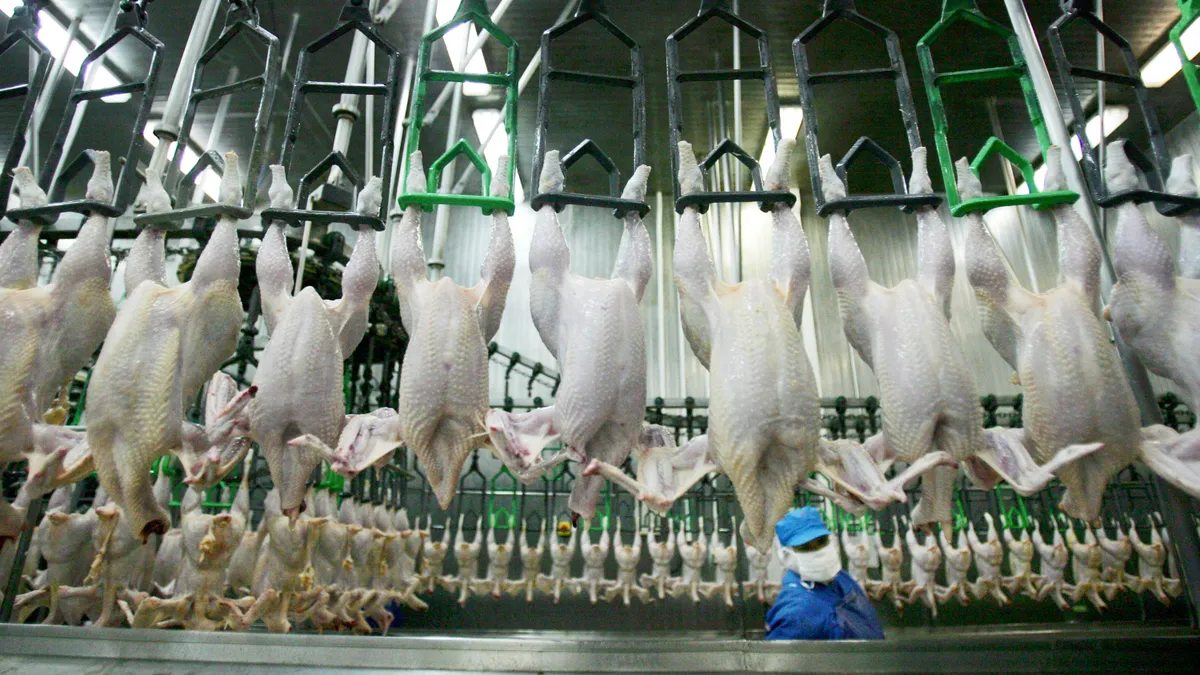Pilgrim’s Pride on Monday acknowledged it may not be able to achieve its 2040 net-zero climate goal as the poultry giant struggles to make substantial progress on reducing greenhouse gas emissions at the farm level.
The poultry giant reported in its 2023 sustainability report that it is "on track" for a number of goals around renewable energy and reducing emissions at its own facilities. However, it listed its 2040 net-zero goal as an "opportunity," with a disclaimer that the target will depend on technology innovation, regulatory changes and other "factors outside of the company’s control."
“Because of these variables, among others, the company may not be able to achieve net zero by 2040,” the company said in its latest report.
Pilgrim's parent company JBS SA is facing intense scrutiny over its climate record as it pursues a listing on the New York Stock Exchange. The state of New York sued the Brazil-based food conglomerate for making “misleading” climate claims earlier this year. The case is ongoing.
Pilgrim's scope 3 emissions, which include the climate impact of farms and other suppliers, rose 10% from 2021 to 2023. Emissions from purchased goods and services climbed every year since 2021, rising 2.5% from 2022 to 2023.
Pilgrim's suppliers may have a significant climate impact, as the company does not account for emissions from land use change and deforestation, but improvements to these calculations are in progress.
Pilgrim's said in its report that its individual businesses around the world are researching solutions around "animal welfare, animal nutrition, farm management, and other areas to help further our Scope 3 GHG emissions reduction strategy."
The company is also running behind in its goal to reduce water use intensity by 15% by 2030. Pilgrim’s reported a 6% increase since 2019, which is an improvement from 2022.
Although progress is going slower than expected, the company is not wavering on these opportunities and is on track with other targets. Pilgrim’s has already completed two-thirds of its goal to reduce Scope 1 and Scope 2 greenhouse gas emission intensity by 30% by 2030.
The company is also on track to have 60% of the total electricity used in its global operations to be renewable by 2030. As of last year, Pilgrim’s achieved a renewable transformation of 14.2%.











